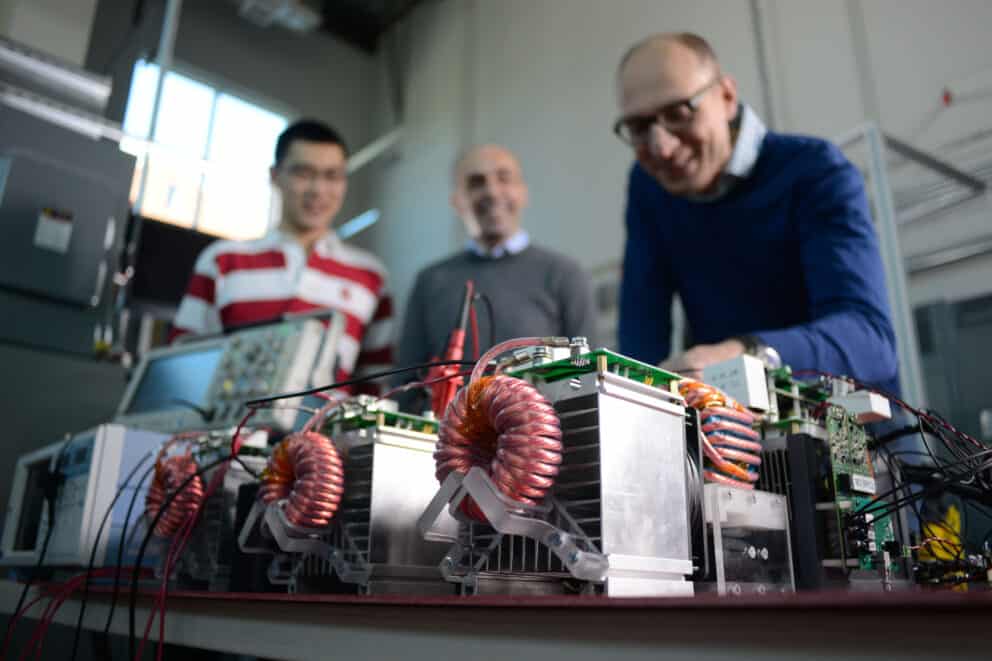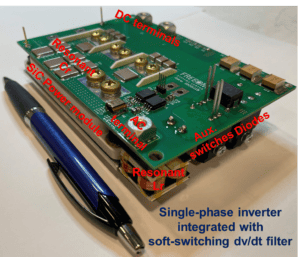Solid State Transformers for Medium Voltage Fast Charging
Traditional charging station designs use low voltage power electronic solutions which increase costs and decrease efficiency. But NC State and other researchers are designing extreme fast chargers that use Silicon Carbide devices and pull power from the utility distribution grid at 13,000 volts or more. Silicon carbide power electronics can operate at much higher voltages and temperatures than traditional electronics based on silicon technology. This approach eliminates the 60 hertz transformer that normally steps the grid voltage down to 480 volts. Eliminating this low frequency transformer and associated low voltage switchgear decreases the overall footprint of the extreme fast charger, which is very important for fleet owners that may have space constraints.
High Power SiC Inverter for Heavy Truck Traction Drive
FREEDM researchers partnered with Ricardo Engineering to develop a 250kW traction drive for Class 8 Trucks. Design and testing of such an inverter presents unique challenges related to the high voltage, high current, and EMI involved. Peak current capability was confirmed using a practical recirculating current method which minimizes power supply and load requirements. Further power testing used an inductive and resistive load to mimic normal operating conditions.
2.2 Level Topology for Advanced EV Charging
With funding from PowerAmerica, FREEDM developed a novel enhancement for the standard 2-Level inverter topology by adding an active filter in parallel that allows zero voltage switching. Compared to the state of the art T-type 3-Level SiC inverter, our design shows:
- 10X reduction of switching loss which reduces SiC chip size and cost;
- 10X reduction of dv/dt noise which reduces the size and cost of common-mode choke; and
- An adaptive gating control which allows the solution to scale for various applications.
The benefits were proven experimentally with a 150 kW motor drive. The technology will be adapted for charging applications through a partnership with Quadron Innovations which provides a way for alumni to engage in research projects.

